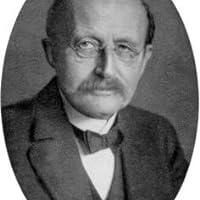
Max Planck
Sull'autore
Max Planck was a German theoretical physicist best known for his role in the development of quantum theory, which revolutionized our understanding of atomic and subatomic processes. Born in 1858, he began his academic career at the University of Munich and later held a position at the University of Berlin. His groundbreaking work on black-body radiation, which led to the formulation of Planck's constant, laid the foundation for modern quantum mechanics. This shift in physics not only transformed scientific thought but also opened the door for subsequent advancements in various fields, including chemistry and technology.
Planck's contributions extended beyond his scientific discoveries; he was also a prominent figure in the scientific community, advocating for the importance of scientific integrity and freedom. Throughout his life, he received numerous accolades, including the Nobel Prize in Physics in 1918. Despite facing personal tragedies, including the loss of family members during the tumultuous periods of World War I and World War II, Planck's legacy endures through his significant impact on physics and his influence on future generations of scientists.